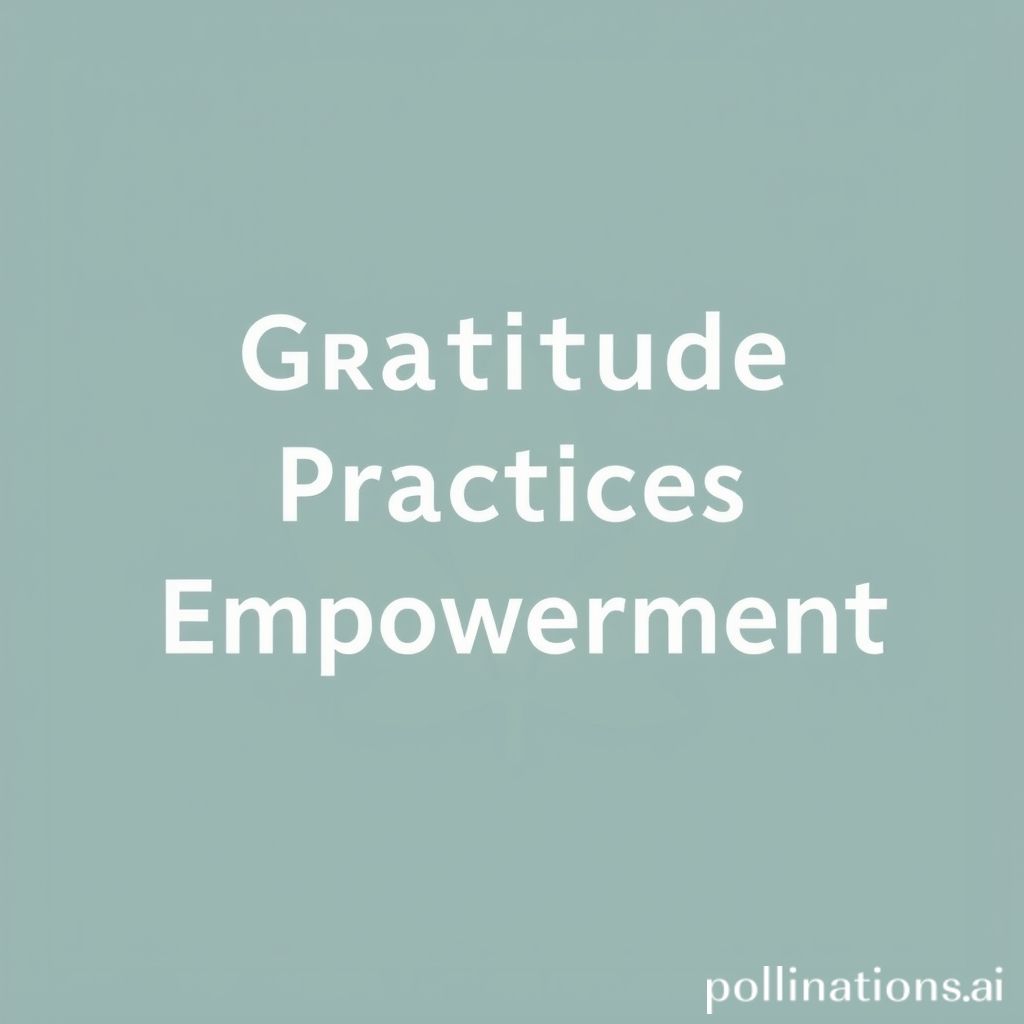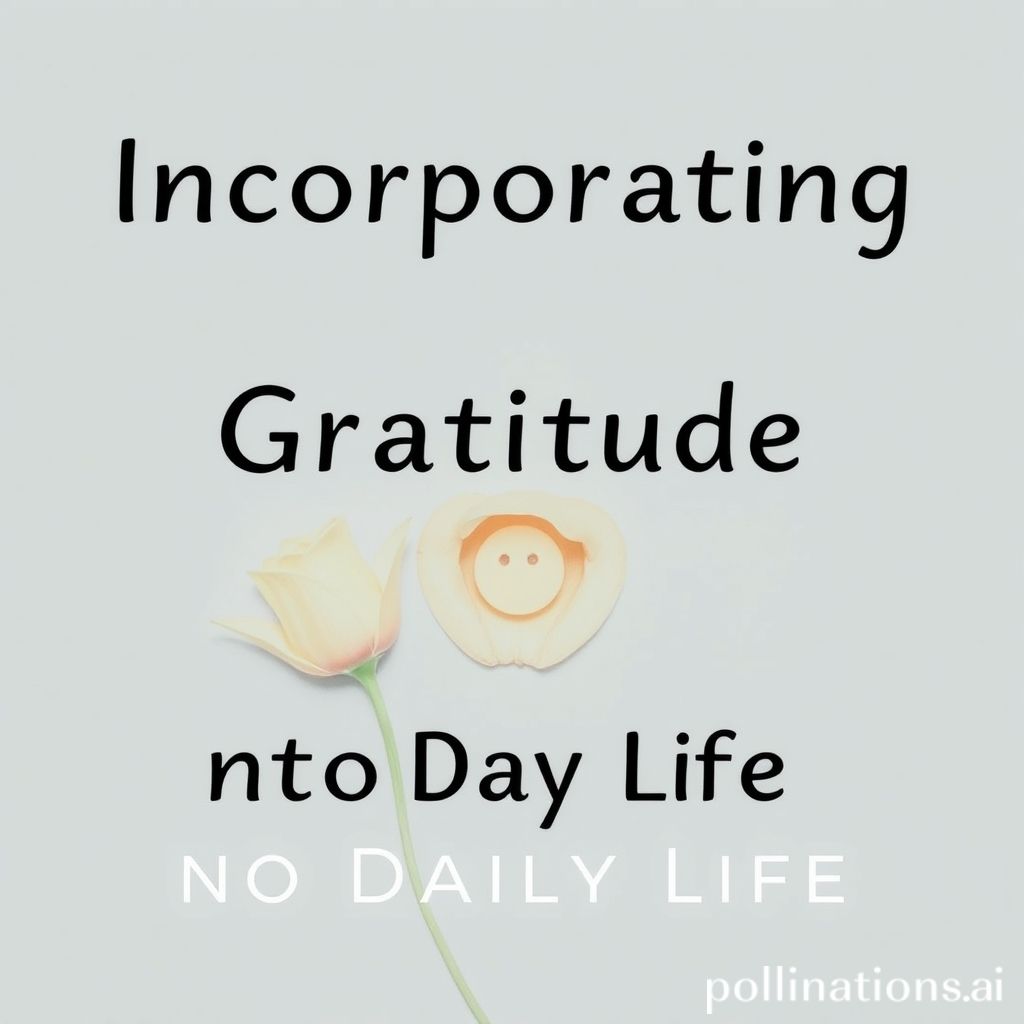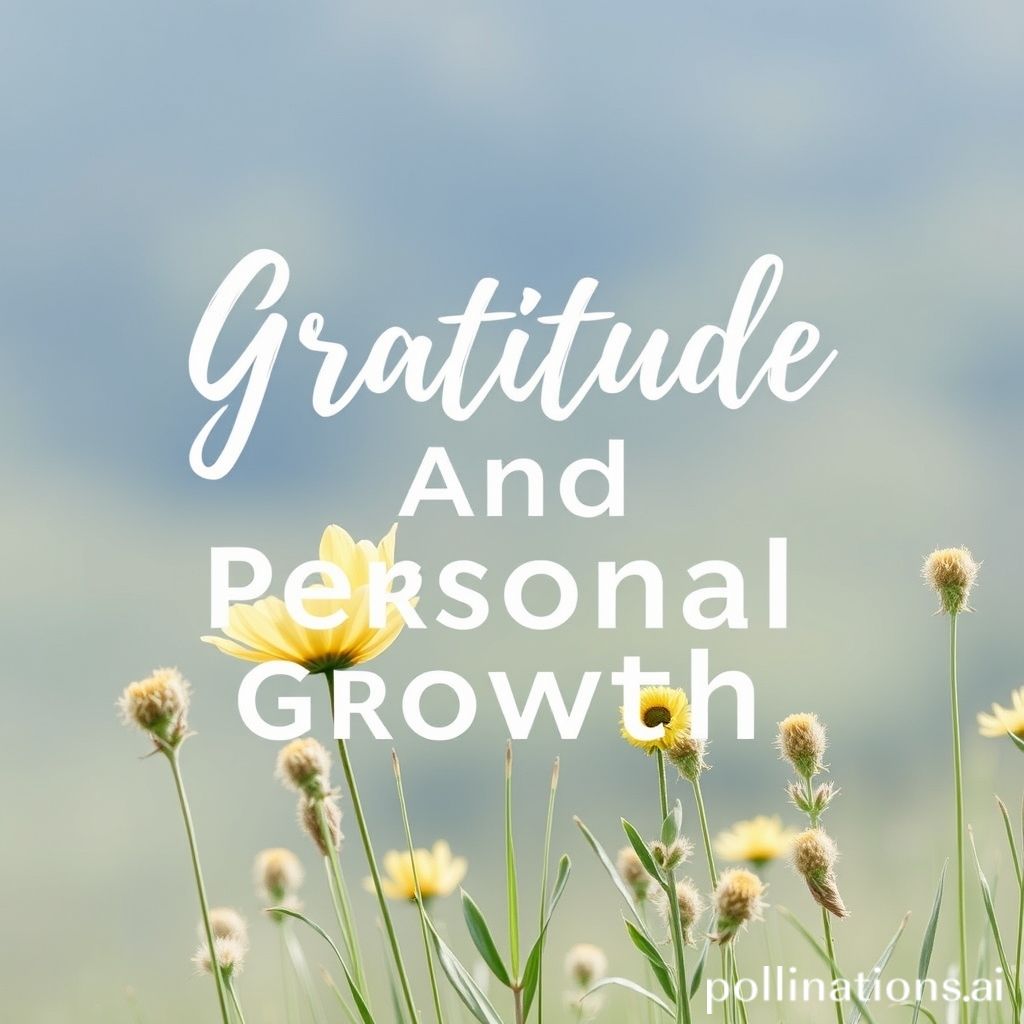Gratitude practices have been shown to have a positive impact on mental health and overall well-being. Focusing on what we are grateful for helps us see things positively.
This can lead to increased feelings of empowerment and resilience in the face of challenges. In this article, we will explore different gratitude practices that can empower us and help us live more fulfilling lives.
Embracing Gratitude
In this section, we will ponder the concept of gratitude and its profound effects on our well-being and happiness.
1. What is Gratitude and How Does it Work?
Gratitude is the quality of being thankful and appreciative. It is a powerful emotion that can transform our lives and relationships. Practicing gratitude means recognizing the good things in our lives and showing appreciation for the people, experiences, and things that make us happy.
Research has shown that gratitude has numerous benefits for our mental and physical health. It can improve our mood, reduce stress, and amplify our overall sense of well-being. By focusing on the positive aspects of our lives, we cultivate a mindset of abundance and contentment.
To cultivate gratitude, we can start by keeping a gratitude journal. Each day, write down three things you are grateful for and why. This simple practice helps us shift our focus from what is lacking to what we have. We can also express gratitude to others by writing thank-you notes or simply saying “thank you” more often.
Practicing gratitude regularly can rewire our brains to become more positive and resilient. It helps us develop a mindset of abundance and attracts more positive experiences into our lives.
2. The Science Behind Gratitude
Scientific research has shed light on the profound effects of gratitude on our well-being. Studies have shown that being grateful activates the brain’s reward system and increases dopamine production, associated with pleasure and motivation.
Gratitude also enhances our relationships. When we express gratitude towards others, it strengthens our social connections and fosters a sense of belonging. It promotes empathy, compassion, and forgiveness, leading to healthier and more fulfilling relationships.
Moreover, gratitude has been linked to improved physical health. It boosts the immune system, lowers blood pressure, and reduces symptoms of stress and depression. People who regularly practice gratitude tend to have lower levels of inflammation and overall better cardiovascular health.
To fully experience the benefits of gratitude, imperative to cultivate a daily practice. Develop the habit of gratitude by taking a few minutes each day to think about the things you are thankful for. As you incorporate gratitude into your life, you will notice a positive shift in your mindset and overall well-being.
| Benefits of Gratitude |
|---|
| Improved mood |
| Reduced stress |
| Enhanced well-being |
| Stronger social connections |
| Improved physical health |

Different Ways to Practice Gratitude
1. Keeping a Gratitude Journal
One effective way to cultivate gratitude is by keeping a gratitude journal. In this practice, individuals write down things they are grateful for regularly. It helps to focus on the positive aspects of life and encourages a mindset of gratitude. By reflecting on the good things in life, individuals can develop a greater sense of appreciation and contentment.
2. Voicing Gratitude through Acts of Kindness
Another way to practice gratitude is by voicing it through acts of kindness. This can include showing appreciation to others, doing random acts of kindness, or just being helpful and considerate in daily interactions. By showing kindness and gratitude, people not only make a positive impact on others but also strengthen their own sense of gratitude.
3. Gratitude Meditation and Mindfulness
Gratitude meditation and mindfulness involve focusing on the present moment and cultivating gratitude for what is already here. Through meditation, individuals can train their minds to stay present and appreciate the simple joys of life. By practicing gratitude meditation and mindfulness, individuals can augment their overall well-being and develop a deeper sense of gratitude.
| Benefits of Practicing Gratitude | |
|---|---|
| Improved Mental Health: | Practicing gratitude has been linked to reduced stress, increased happiness, and improved overall mental well-being. |
| Enhanced Relationships: | Conveying gratitude can strengthen relationships, foster a sense of connection, and promote positivity in interactions with others. |
| Increased Resilience: | Gratitude can help individuals develop resilience and cope with challenges by shifting their focus towards the positive aspects of life. |
Integrating Gratitude into Daily Life
Gratitude is a powerful practice that can greatly elevate our daily lives. Cultivating gratitude helps us focus on the positive in life and feel happier. In this section, we will ponder various ways to incorporate gratitude into our daily routines.
1. Creating a Gratitude Routine
One effective way to incorporate gratitude into our daily lives is by creating a gratitude routine. This can involve setting aside a specific time each day to reflect on the things we are grateful for. Expressing gratitude, whether in the morning or before bed, can greatly improve our well-being.
2. Gratitude Practices for the Morning
Starting our day with a grateful mindset can set a positive tone for the rest of the day. Some gratitude practices for the morning include:
- Journaling: Take a few minutes to write down three things you are grateful for.
- Affirmations: Repeat positive affirmations that focus on gratitude and appreciation.
- Meditation: Practice a gratitude meditation to cultivate a sense of gratitude and calmness.
3. Gratitude Practices for the Evening
Ending our day with gratitude can help us reflect on the positive experiences and moments we encounter throughout the day. Some gratitude practices for the evening include:
- Reflection: Take a moment to reflect on three things that went well during the day.
- Gratitude jar: Write down one thing you are grateful for and place it in a gratitude jar.
- Communicating gratitude: Take the time to express gratitude to someone who made a positive impact on your day.

Gratitude and Personal Growth
1. How Gratitude Enhances Self-Reflection
Gratitude is a powerful tool that can optimize self-reflection and personal growth. When we practice gratitude, we cultivate a mindset of appreciation and acknowledge the positive aspects of our lives. This mindset allows us to reflect on our experiences with a sense of gratitude and gain valuable insights.
Furthermore, gratitude helps us to develop a deeper apprehending of ourselves and our emotions. It allows us to recognize and appreciate the lessons we have learned from challenging experiences. Through self-reflection, we can identify patterns, behaviors, and beliefs that may be holding us back, and gratitude provides us with the motivation and resilience to overcome them.
2. Using Gratitude to Overcome Challenges
Challenges are an inevitable part of life, and they can often leave us feeling overwhelmed and discouraged. That being said, practicing gratitude can help us navigate through these challenges and emerge stronger and more resilient.
When we face difficulties, it is natural to focus on the negative aspects and dwell on what went wrong. Although, by shifting our perspective and focusing on what we can be grateful for in those situations, we can find the strength and motivation to overcome them.
Gratitude allows us to reframe challenges as opportunities for growth and learning. It helps us to find the silver linings in difficult situations and appreciate the lessons they bring. By acknowledging and voicing gratitude for these lessons, we can cultivate a sense of resilience and develop the skills necessary to overcome future challenges.
Moreover, gratitude fosters a positive mindset and helps us to maintain a sense of hope and optimism. It reminds us of the resources and support systems available to us and encourages us to seek help when needed. Through practicing gratitude, we can build a strong foundation for personal growth and navigate through life’s challenges with grace and resilience.
| Benefits of Practicing Gratitude: |
|---|
| – Enhanced self-reflection and personal growth |
| – Improved self-esteem and confidence |
| – Deeper cognizing of oneself and emotions |
| – Increased resilience and motivation to overcome challenges |
| – Reframing challenges as opportunities for growth |
| – Cultivation of hope and optimism |

Gratitude and Relationships
Gratitude plays a significant role in strengthening bonds and fostering healthy relationships. By verbalizing gratitude, we can deepen our connections with others and create a positive and nurturing environment.
1. Strengthening Bonds through Gratitude
Representing gratitude towards our loved ones can strengthen the bonds we share. Whether it’s a simple “thank you” or a heartfelt note, showing appreciation can make the other person feel valued and cherished. This act of gratitude creates a sense of reciprocity, where both parties feel motivated to nurture the relationship.
2. Representing Gratitude in Relationships
In relationships, communicating gratitude can have a profound impact. By acknowledging and appreciating each other’s efforts, couples can create a deeper sense of connection and intimacy. Small gestures like saying “I appreciate you” or surprising your partner with a thoughtful gift can go a long way in nurturing a loving and supportive partnership.
2.1 Cultivating Gratitude Rituals
Creating gratitude rituals within your relationship can further amplify the bond between partners. This can include starting each day by voicing gratitude for one another, keeping a gratitude journal together, or even setting aside dedicated time to share what you are grateful for as a couple. These rituals can help foster a sense of appreciation and positivity within the relationship.
2.2 The Power of Thankful Communication
Communication is key in any relationship, and imbibing gratitude into your communication style can have a transformative effect. Instead of focusing solely on complaints or criticisms, make it a point to express gratitude for the positive aspects of your partner and the relationship. This shift in communication can create a more harmonious and fulfilling connection.
To further understand the significance of gratitude in relationships, let’s take a look at the following table:
| Benefits of Gratitude in Relationships | Effect |
|---|---|
| 1. Increased Happiness: Articulating gratitude leads to a greater sense of happiness and contentment within the relationship. | Positive |
| 2. Strengthened Trust: Gratitude fosters trust and loyalty between partners, creating a solid foundation for the relationship. | Positive |
| 3. Improved Communication: Verbalizing gratitude promotes open and positive communication, reducing conflicts and misunderstandings. | Positive |
| 4. Enhanced Intimacy: Gratitude cultivates a deeper emotional connection and intimacy between partners. | Positive |
Read More:
1. Visualize Gratitude: Inner Journeys Unveiled
2. Harmonize Within: Gratitude’s Inner Symphony